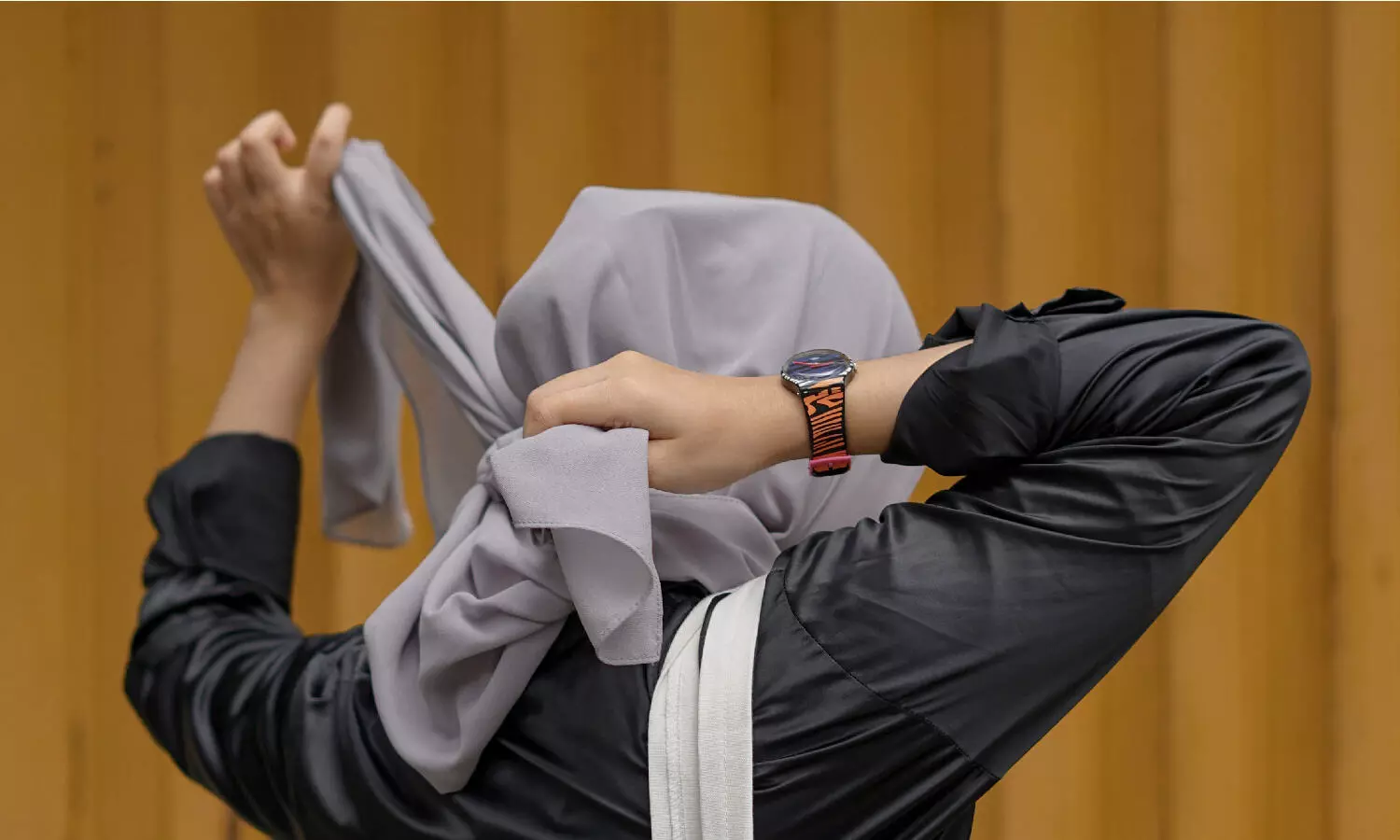< Back
News

News
Saudi Arabia Bans 'Abaya' In Examination Halls
 |
|22 Dec 2022 10:45 AM GMT
As per news reports from Saudi Arabia, the Saudi government has banned 'Abaya' from examination halls.
'Abaya', widely worn by women in Saudi, is a loose cloak worn over the dress to hide the figure and is usually accompanied by a scarf covering the hair, shoulders and neck and often the mouth, much like 'burqa' common among Muslims in India, Pakistan and Bangladesh.
As per a report by The National, an English language newspaper published from Abu Dhabi, The Saudi Education and Training Evaluation Commission which is responsible for accrediting educational and training systems, along with the Ministry of Education has recently announced that female students would not be allowed to wear the abaya in exam halls.
The Commission further said that female students should now wear school uniforms and added that all clothing should adhere to public decency regulations.
The Kerala High Court in the year 2016 granted permission for Muslim students to wear Hijab for the All India Pre-Medical Test (AIPMT) 2016 on the condition that they should be present at the examination hall half an hour before the exam for frisking if necessary. In the year 2018, the Kerala High Court refused to interfere with a school's decision not to allow two Muslim students to wear a headscarf and a full-sleeved shirt to school. The Court held that " I am of the considered view that the petitioners cannot seek imposition of their individual right as against the larger right of the institution. It is for the institution to decide whether the petitioners can be permitted to attend the classes with the headscarf and full sleeve shirt. It is purely within the domain of the institution to decide on the same. The Court cannot even direct the institution to consider such a request."The Karnataka High Court, in March this year, after hearing several petitions filed challenging a state government's order imposing restrictions on wearing hijab in government educational institutions, upheld the State government's right to enforce uniform equally on all students. The Court further held that the petitioners could not establish that hijab in an essential religious practice in Islam and that the students could not object to 'reasonable restrictions' in the form of uniforms. The Supreme Court, in October, however, delivered a split verdict on appeals challenging the decision of the High Court. One Judge said that authorities can enforce a uniform in schools, while the other held that the right to wear the hijab cannot be restricted by the state as it was "ultimately a matter of choice- nothing more and nothing less".
After massive protests in Iran against mandates for wearing hijab, Iran recently decided to review its decades-old mandatory hijab law. The protests were sparked by the death of Mahsa Amini in police custody after being arrested by the morality police.
'Abaya', widely worn by women in Saudi, is a loose cloak worn over the dress to hide the figure and is usually accompanied by a scarf covering the hair, shoulders and neck and often the mouth, much like 'burqa' common among Muslims in India, Pakistan and Bangladesh.
As per a report by The National, an English language newspaper published from Abu Dhabi, The Saudi Education and Training Evaluation Commission which is responsible for accrediting educational and training systems, along with the Ministry of Education has recently announced that female students would not be allowed to wear the abaya in exam halls.
The Commission further said that female students should now wear school uniforms and added that all clothing should adhere to public decency regulations.
The Kerala High Court in the year 2016 granted permission for Muslim students to wear Hijab for the All India Pre-Medical Test (AIPMT) 2016 on the condition that they should be present at the examination hall half an hour before the exam for frisking if necessary. In the year 2018, the Kerala High Court refused to interfere with a school's decision not to allow two Muslim students to wear a headscarf and a full-sleeved shirt to school. The Court held that " I am of the considered view that the petitioners cannot seek imposition of their individual right as against the larger right of the institution. It is for the institution to decide whether the petitioners can be permitted to attend the classes with the headscarf and full sleeve shirt. It is purely within the domain of the institution to decide on the same. The Court cannot even direct the institution to consider such a request."The Karnataka High Court, in March this year, after hearing several petitions filed challenging a state government's order imposing restrictions on wearing hijab in government educational institutions, upheld the State government's right to enforce uniform equally on all students. The Court further held that the petitioners could not establish that hijab in an essential religious practice in Islam and that the students could not object to 'reasonable restrictions' in the form of uniforms. The Supreme Court, in October, however, delivered a split verdict on appeals challenging the decision of the High Court. One Judge said that authorities can enforce a uniform in schools, while the other held that the right to wear the hijab cannot be restricted by the state as it was "ultimately a matter of choice- nothing more and nothing less".
After massive protests in Iran against mandates for wearing hijab, Iran recently decided to review its decades-old mandatory hijab law. The protests were sparked by the death of Mahsa Amini in police custody after being arrested by the morality police.